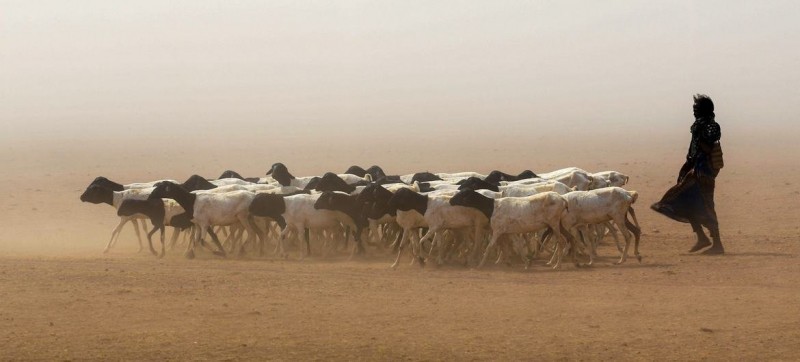Contents
Droughts in Somalia cause hunger to soar and malnutrition rates to rise. As millions of people in the Greater Horn of Africa have already “suffered the longest drought in 40 years,” parts of the region are bracing for a fifth consecutive failed rainy season, the World Meteorological Organization (WMO) has reported. The forecast for October to December, issued at the Greater Horn of Africa Seasonal Climate Outlook Forum, shows high chances of drier than average conditions across most parts of the region, which will further worsen the crisis for millions of people. “It pains me to be the bearer of bad news,” said Guleid Artan, Director of the Intergovernmental Authority on Development (IGAD) Climate Prediction and Applications Centre (ICPAC) – WMO’s climate centre for East Africa. We are entering the 5th consecutive failed rainy season – IGAD official “Sadly, our models show with a high degree of confidence that we are entering the fifth consecutive failed rainy season in the Horn of Africa”. Last month, IGAD and humanitarian agencies raised the alarm that over 50 million people in the region are suffering from acute food insecurity this year. “In Ethiopia, Kenya, and Somalia, we are on the brink of an unprecedented humanitarian catastrophe,” continued Mr. Artan, noting that significantly less rainfall totals are expected until the end of the year. The severity of the situation was echoed by IGAD Executive Secretary Workneh Gebeyehu, who made a solemn call to national governments, donors, humanitarian, and development actors to “adopt a no-regret strategy and help us weather the worst of this crisis”. Rainfall from October to December contributes up to 70 per cent of the annual total in the equatorial parts of the Greater Horn of Africa, particularly in eastern Kenya. Communities are losing their livestock due to drought in South Omo, Ethiopia. However, the start of the rainy season is likely to be delayed across much of the eastern parts of the region, triggering rainfall deficits. The exceptional drought underlines the vulnerability of the region to climate-related risks, which are expected to intensify because of climate change. Against the backdrop that hydrometerological and early warning services (EWS) can potentially reduce negative impacts, WMO revealed the launch of a new $5.2 million project to better enable regional and national entities to produce and use these services. Project Activities will be centered around supporting EWS regional services and strengthening regional coordination and cooperation for these and climate services. Support for regional centres to provide hydromet products and services will in turn contribute to strengthening the capacities of National Meteorological and Hydrological Services, according to WMO. Moreover, the project will also provide technical support to Ethiopia, Somalia, and Sudan by building upon and leveraging ongoing and pipeline investment projects implemented or financed by WMO, the UN Office for Disaster Risk Reduction, and the World Bank. In Ethiopia, activities will support providing electricity to “last mile” poor households in rural areas through a performance-based subsidy to the State-owned utility company. They will also provide communities with actionable EWS, ensure early actions, and develop demand-driven climate and early warning information services. In Somalia, activities will focus on developing and delivering priority public hydromet services; and in Sudan, they will focus on strengthening community involvement in EWS and strengthening flood early warning services. Raising the alarm
Rainfall deficits

Early warning initiative
Ethiopia, Somalia, and Sudan




Comments are closed, but trackbacks and pingbacks are open.